|
The readings for this sermon are Leviticus 19:1-2; 15-18, and Matthew 22:34-46. Various Laws Leviticus 19:1-2; 15-18 The Lord said to Moses, “Speak to the entire assembly of Israel and say to them: ‘Be holy because I, the Lord your God, am holy. “‘Do not pervert justice; do not show partiality to the poor or favouritism to the great, but judge your neighbour fairly. ‘Do not go about spreading slander among your people. Do not do anything that endangers your neighbour’s life. I am the Lord. ‘Do not hate a fellow Israelite in your heart. Rebuke your neighbour frankly so you will not share in their guilt. Do not seek revenge or bear a grudge against anyone among your people, but love your neighbour as yourself. I am the Lord.” The Greatest Commandment Matthew 22:34-40 Hearing that Jesus had silenced the Sadducees, the Pharisees got together. One of them, an expert in the law, tested him with this question: “Teacher, which is the greatest commandment in the Law?” Jesus replied: “‘Love the Lord your God with all your heart and with all your soul and with all your mind.’ This is the first and greatest commandment. And the second is like it: ‘Love your neighbour as yourself.’ All the Law and the Prophets hang on these two commandments.” Whose Son Is the Messiah? Matthew 22:41-46 While the Pharisees were gathered together, Jesus asked them, “What do you think about the Messiah? Whose son is he?” “The son of David,” they replied. He said to them, “How is it then that David, speaking by the Spirit, calls him ‘Lord’? For he says, “The Lord said to my Lord: Sit at my right hand until I put your enemies under your feet.” If then David calls him ‘Lord,’ how can he be his son?” No one could say a word in reply, and from that day on no one dared to ask him any more questions. This week, I started to write down some of the lessons I have learnt about life.
If you were to ask me what was the greatest poem I have ever read, I think If by Joseph Rudyard Kipling (1865-1936) would fit the criteria. Travelling on the underground recently, I saw a poem, which I think during Covid-19 and these unprecedented times is a new favourite. It is by John O'Donohue. This is the time to be slow, Lie low to the wall Until the bitter weather passes. Try, as best you can, not to let The wire brush of doubt Scrape from your heart All sense of yourself And your hesitant light. If you remain generous, Time will come good; And you will find your feet Again on fresh pastures of promise, Where the air will be kind And blushed with beginning. Jesus was confronted by Pharisees, Herodians and Sadducees who wanted to trap Jesus by asking difficult questions. The Gospel reading today asks which is the greatest commandment. There are 613 commandments in the Torah, the first five books of the Bible, so which one is the greatest? We know the Ten Commandments, surely it is going to be one of those? Instead, Jesus sums up all the 613 commandments with these words: “Love the Lord your God with all your heart and with all your soul and with all your mind.” He goes on to say the second greatest is “Love your neighbour as yourself.” It is a helpful response, and the two go together because to show that you love God, you surely must love God’s creation. Therefore, we must love our neighbour whoever they may be. Both of these commandments are mentioned in the Torah. Deuteronomy 6:5, which is part of the Shema Yisrael that Jews say twice daily, contains the first and "love your neighbour", is taken from Leviticus 19:18. So, it is not new, but Jesus has pulled these two together to summerise how we can truly worship God. It is how our Christian lifestyle is defined; the vertical dimension of loving God crossed with the horizontal direction of loving our neighbour. We know who our neighbour is through the parable of the Good Samaritan. Our neighbour is anyone who is in need. I sometimes forget how radical the concept of only having one God is. In Roman times, I think there were over 60 gods that you could worship, including, of course, the famous Olympian Gods: Jupiter, Venus, Apollo, Diana, Neptune and so on. It is radical to go from the safety of having so many powerful gods to pray to when you need help, to having only one. Even more remarkable, this one God loves us and wants to have a relationship with us. The Roman Gods never once had a thought for us, so through Judaism, this concept of God, creator of the universe, wanting time and a relationship with us is groundbreaking. When I compare the Ten Commandments with the response Jesus gave, worshipping God, having no idols and not misusing God's name fall into place. Loving my neighbour means I will honour my mother and father, I will not commit adultery, murder or steal, and I will not give false witness or covet other people’s goods. The Sabbath reminds us, as Augustine (354-430) said, we have to love ourselves. We cannot love our neighbour as ourself unless we love ourselves. The Sabbath provides us that day of rest whereby we can not only appreciate God’s wonder, but it also allows us to recharge, restore and renew. Jesus goes one step further in our reading. After answering all the questions, Jesus poses one based upon Psalm 110. This Psalm, written by King David, is the prophetic notion that the Messiah will not just be of David’s line, but will also be far superior to David, so much so David calls him Lord. Jesus’ question stumps the would-be questioners and silences them. We see Jesus as being beyond human, touching the divine, and it is that acknowledgement of his true self that quiets the crowd. We too have to acknowledge who we are for we often have a mask that we show the world; one we believe the world wants to see for which we will gain acceptance and love. But if we are to truly love ourselves, we have to remind ourselves of our true self rather than the self we portray to others. So, we offer to God who we truly are knowing that God will accept us, love us and transform us. This sermon was first preached by Rev'd Martin Wheadon at Gants Hill United Reformed Church on 25th October 2020
0 Comments
We start by reading Psalm 56:1-6, written over a thousand years before Christ was born. Verse 6 shows how it is possible to twist the writer's words. 1 Be merciful to me, my God, for my enemies are in hot pursuit; all day long they press their attack. 2 My adversaries pursue me all day long; in their pride many are attacking me. 3 When I am afraid, I put my trust in you. 4 In God, whose word I praise-- in God I trust and am not afraid. What can mere mortals do to me? 5 All day long they twist my words; all their schemes are for my ruin. 6 They conspire, they lurk, they watch my steps, hoping to take my life. This Psalm leads into today’s service, which is predominantly the Gospel story of Matthew 22:15-22, where the Pharisees and the Herodians try to trick Jesus. The lectionary also highlights Isaiah 45:1-7, so let us look at that reading first then lead into the Gospel. 1 “This is what the Lord says to his anointed, to Cyrus, whose right hand I take hold of to subdue nations before him and to strip kings of their armour, to open doors before him so that gates will not be shut: 2 I will go before you and will level the mountains; I will break down gates of bronze and cut through bars of iron. 3 I will give you hidden treasures, riches stored in secret places, so that you may know that I am the Lord, the God of Israel, who summons you by name. 4 For the sake of Jacob my servant, of Israel my chosen, I summon you by name and bestow on you a title of honour, though you do not acknowledge me. 5 I am the Lord, and there is no other; apart from me there is no God. I will strengthen you, though you have not acknowledged me, 6 so that from the rising of the sun to the place of its setting people may know there is none besides me. I am the Lord, and there is no other. 7 I form the light and create darkness, I bring prosperity and create disaster; I, the Lord, do all these things. Isaiah prophesied from 740-681 BC. This reading highlights Cyrus as doing God’s bidding. Cyrus the Great was born in 600 BC and died in 70 years later, we believe, on 4th December 530 BC, probably in battle. Cyrus became king in 560BC reigning for 30 years and had the grand titles of King of Anshan, King of Persia, King of Media, King of the World, King of Babylon, King of Sumar and Akkad, and King of the Four Corners of the World. The strange thing about the passage is Isaiah wrote it around 150 years before Cyrus the Great came to power; it is a prophecy. Cyrus the Great was the founder of the Persian Empire, now known as Iran. He was a great military strategist and is the only non-Jewish person given the title of Messiah in the Bible. He knew the world of politics but showed humanitarian traits as he respected the customs and religions of the people he conquered. His empire was the largest ever known at the time, spanning two thousand miles, including Assyria and Babylonia. It was Cyrus who allowed the Jewish people to leave their exile and for Jerusalem to be rebuilt. Cyrus is significant in the history of Israel, and Isaiah prophesied it 150 years before. In one report, it said because Cyrus read the account of Isaiah, Cyrus made the prophecy come true by invading and freeing the people of Israel. God, therefore, is not limited to using the Jewish population; God can use anybody, Jew or Gentile. It is always important to remember this in our relationship with God; God can and does use us to fulfil God’s almighty plan. We move into Matthew and the trickery with which he had to deal. 15 Then the Pharisees went out and laid plans to trap him in his words. 16 They sent their disciples to him along with the Herodians. “Teacher,” they said, “we know that you are a man of integrity and that you teach the way of God in accordance with the truth. You aren’t swayed by others, because you pay no attention to who they are. 17 Tell us then, what is your opinion? Is it right to pay the imperial tax to Caesar or not?” 18 But Jesus, knowing their evil intent, said, “You hypocrites, why are you trying to trap me? 19 Show me the coin used for paying the tax.” They brought him a denarius, 20 and he asked them, “Whose image is this? And whose inscription?” 21 “Caesar’s,” they replied. Then he said to them, “So give back to Caesar what is Caesar’s, and to God what is God’s.” 22 When they heard this, they were amazed. So they left him and went away. To put you in the mood here is a story: In a small Italian town, hundreds of years ago, a small business owner owed a large sum of money to a loan-shark. The loan-shark was a very old, unattractive looking guy that just so happened to fancy the business owner’s daughter. He decided to offer the businessman a deal that would completely wipe out the debt he owed him. However, the catch was that we would only wipe out the debt if he could marry the businessman’s daughter. Needless to say, this proposal was met with a look of disgust. The loan-shark said that he would place two pebbles into a bag, one white and one black. The daughter would then have to reach into the bag and pick out a pebble. If it was black, the debt would be wiped, but the loan-shark would then marry her. If it was white, the debt would also be wiped, but the daughter wouldn’t have to marry the loan-shark. Standing on a pebble-strewn path in the businessman’s garden, the loan-shark bent over and picked up two pebbles. Whilst he was picking them up, the daughter noticed that he’d picked up two black pebbles and placed them both into the bag. He then asked the daughter to reach into the bag and pick one. The daughter naturally had three choices as to what she could have done: 1.Refuse to pick a pebble from the bag. 2. Take both pebbles out of the bag and expose the loan-shark for cheating. 3. Pick a pebble from the bag fully well knowing it was black and sacrifice herself for her father’s freedom. She drew out a pebble from the bag, and before looking at it ‘accidentally’ dropped it into the midst of the other pebbles. She said to the loan-shark; “Oh, how clumsy of me. Never mind, if you look into the bag for the one that is left, you will be able to tell which pebble I picked.” The pebble left in the bag is obviously black, and seeing as the loan-shark didn’t want to be exposed, he had to play along as if the pebble the daughter dropped was white, and clear her father’s debt. Moral of the story: It’s always possible to overcome a tough situation through out of the box thinking, and not give in to the only options you think you have to pick from. In the Gospel reading, Jesus the Pharisees and the Herodians questioned Jesus. Knowledge of the Herodians is scarce, other than they must be supporters of Herod. Therefore, the Herodians were in opposition to the Pharisees - the common enemy of Jesus brings forth strange bedfellows. Yet, Jesus had the measure of them. The fact they produced a Denarius when Jesus asked for a coin has implications. On the Denarius it reads "Ti(berivs) Caesar Divi Avg(vsta) F(ilivs) Avgvtvs", which in English means Caesar Augustus Tiberius, son of the divine Augustus. On the reverse, we have a seated female, believed to be Livia depicted as Pax, the goddess of Peace, with the words "Pontif Maxim". Having the image of Tiberius was an anathema to the Jews. The fact that it claimed Augustus was God was offensive to the Jewish population. As a result, pious Jews did not carry that coin but did their business using smaller denominations. The coin itself was worth one day’s labour; smaller copper coins, which did not hold the face of the emperor, were quite ordinary and were used for daily life. So, the Denarius must have been produced by a Herodian because a Pharisee, would not carry such a coin. So, Jesus comes up with the famous statement, “Render to Caesar that which is Caesar's.” In some Bibles, the translation is not "render" but "give to Caesar". I understand the Greek "to render" means to give back, which implies they must have received something already. They were benefitting by the Roman occupation, profiting from the blessings of good communication, transport links, freedom from tribal warfare, stable currency with coins used all over the known world and general peace. It is strange to think of an occupation bringing blessings, and I presume if you live in such a society, the expectations are you give back to that society from which you have taken. There is a common theme throughout the new testament. Jesus says to love your enemies, and Paul frequently writes to submit to the authorities, as does Peter. So, the idea of giving back to Caesar reflects they are part of the Roman situation. But when spirituality conflicts with society, Jesus says God comes first; even though we live in society, it is obedience to God that comes first. So, his famous sentence is quite brilliant, as it satisfies both parties and the people posing the question were amazed at the answer. They found the answer quite marvellous. The scene is then set for the Sadducees to have a go at questioning Jesus, but for the minute, Jesus had shown his ability at dealing with tricky questions. So, let us reflect: we acknowledge the blessings we receive from living in society; we give back, but we also recognise God’s importance, which means we have absolute obedience to God. In today’s world, Covid-19 means we put our trust in God, but there are also so many other groups who are requesting our support, Black Lives Matter and climate change being two examples. We have to obey the law because it is Biblical, but that does not mean we cannot stand up for others. It is also Biblical that we should stand up and try to change the structures in society that result in injustice. It is a balance, what do we give back to our communities, and what do we offer to God? This sermon was first preached by Rev'd Martin Wheadon at Great Dunmow United Reformed Church on 18th October 2020
Kimberly Rae draws attention to the ongoing trafficking of children in India in her young adult novel Capturing Jasmina. Jasmina was only ten when her father sold both her and her brother Samir to a man promising safety and good education. In reality the siblings end up in a sweatshop slaving over clothes to be sold in America. After three years they manage to escape only to be trafficked a second time. Eventually Jasmina and Samir are separated and Jasmina becomes a street kid.
Whilst living on the streets Jasmina encounters a Christian missionary, Asha, rescuing women from brothels by either offering them a safe place to live or at the very least spiritually, by teaching them about God and Jesus. Intrigued Jasmina follows Asha who then offers to help her too. After having her childhood robbed from her, it seems like Jasmina, with the help of those who trust in God, will get back on her feet again. Despite being a short novel, Rae paints a contrasting image to what the western world is used to. Jasmina finds the concept of a simple toilet baffling. It is not until you hear or see what is happening to innocent people in other parts of the world that you realize there are so many things in life you take for granted. Capturing Jasmina emphasizes how difficult it is to escape once trafficked. In these situations people belong to everyone but themselves. They have no freedom and running away can cause more problems than it solves. The novel also shows what Christians can do to help. Although no one can completely solve the problems, the tiniest piece of aid they can provide is a step in the right direction. It was slightly disappointing that we do not find out what happened to Samir once he was separated from his sister. Jasmina’s first person narrative makes it clear that what she wants most is to be reunited with her family. In a way, although there is a positive ending, not yet finding her brother makes it clear that there cannot always be happy endings. It is not possible to save everyone. Written from a young teenagers point of view makes this book suitable for ages twelve and older. Christians will appreciate the biblical references however there is not too much religion for non-believers or those of other religions to get offended by.
The Murder of Adam and Eve by William Dietrich is a young adult, science fiction thriller combining aliens and time travel. What started out as sixteen year old Nick Brynner researching for his History Day project on an out of bounds island, leads to him falling through a wormhole, meeting an alien – a Xu, and eventually finding himself in prehistoric Africa.
Before finding himself in a completely different era, Nick meets a biology-loving teenager, Eleanor Terrell, who tells him she had been abducted by aliens. Initially thinking she is crazy, Nick believes her once one of the said aliens appears to them and claims they have been chosen to try and save mankind. The Xu intend to wipe out humanity by travelling back in time and killing the two people from whom the human race descend from – the people named Adam and Eve in the bible. However they are giving Nick and Ellie a final chance to prevent this from happening. Once transported to ancient Africa, Nick and Ellie start a desperate search for Adam and Eve in order to protect them from the Xu. But in order to do this they need to be able to take care of themselves in a place where water, food and shelter are not easily come by. Once locating the people they seek for they begin to realize the enormity of the task they have been given; whatever they do will have a massive impact on the future of the world. The Murder of Adam and Eve is an interesting concept that really gets you thinking about the way in which the world has developed. Despite the usage of the biblical names Adam and Eve this book is not based on religious theory at all. It is a science-based idea maintaining that the human race can eventually be traced back to two people. Many readers may be able to relate to both Nick and Ellie’s personalities. Nick in particular is a quiet, unnoticeable boy without any great talent, however during the book he grows into a more confident person and becomes the leader needed in order to save mankind. Overall this fast paced book is fun to read. Although a little too far-fetched to take seriously, it makes the reader think more about the ways humans have behaved over the years but also highlights the positives and our ability to make things and learn. The clash of the two different time periods makes it a thought-provoking novel that many teenagers will love to read.
The Followers is the compelling second novel of the British author Rebecca Wait. Stephanie is living a mundane life with her daughter, making what little money she can at a local coffee shop. But then she meets Nathaniel, a man who says he wants to love her, look after her and make her happy. Stephanie and Judith move in with Nathaniel at a place known as the Ark, with a bunch of other people who are part of a religious cult. Nathaniel, who proclaims himself as a prophet, is determined for Stephanie to forget about her past and turn herself to God. Judith, however, is not so easy to persuade. However a turn of events raise questions as to whether Nathaniel should really be trusted.
The story begins with Stephanie in prison where she is serving her sentence for a crime the reader has no knowledge of. It then switches between “before” and “after” with “before” being when Stephanie meets Nathaniel and “after” involving the prison scenes. From the very start the reader knows something bad is going to happen, that Stephanie is going to break a law bad enough for her to be imprisoned. The following chapters keep readers guessing what exactly that offence would be. The novel gets darker and darker as the truth about the running of the Ark is revealed. With violence and punishments being doled out, Nathaniel is no longer the man he originally appeared. As the book climaxes it is shocking when the reader realizes what it is that Stephanie is going to do. As well as Judith there are other children living in the Ark, but the difference is they were born there and have known nothing else except doing things in the name of God. Judith on the other hand was not sheltered from the “evils” of the outside world and thus has a different opinion about the way Nathaniel treats his followers. As it turns out, Judith is right to distrust the ways of this man, but there is nothing she can do about her situation. Although containing a strong religious theme, The Followers is not a piece of Christian fiction. The behaviour of Nathaniel and the members of the Ark does not reflect the average Christian, and everyone, whether religious or not, will be shocked by the happenings in this book. It took a while to get into the storyline and the first few chapters did not feel particularly well written, however readers will quickly be sucked into the plot and will want to keep reading to find out what happens. The Followers is not a happy story and there are a few sad and distressing scenes, which make the reader really feel for some of the characters. Overall it is a very interesting read. The following poems were read at our Harvest Festival. Soul Foodby anonymous I love the taste of T-bone steak, Delicious every bite, But there's nothing like the Word of God, For my spiritual appetite. The Word of God has milk and meat, And even ice cream and cake. Take a slice of the Bread of Life, And coffee to keep us awake. Open your Bible and turn to Psalms, For David's famous buffet. You can drink all the wine of the word you want, And still feel fine the next day. There's enough of the Word for everyone, And no one has to cheat. The Word of God is a smorgasbord, So take all you are able to eat. Let's have a little longsuffering, Job gives the recipe. Patience is the main ingredient, Self denial is the fee. Wrap that up in temperance, It may not make much sense, Cover that with contentment, Then add some joy for strength. Let's have love for dessert, Jesus made this dish, Cream of joy and peace together, Sift out all selfishness. Add some deeds of righteousness, Enough to make it sweet. Humility is the frosting, That makes the dish complete. Or are you on a diet, Cause the race seems hard to run. For a weight losing menu, try Hebrews 12 and 1. Are you suffering from malnutrition, And don't know what to do? Your spiritual growth seems hindered, Try 1 Peter 1 and 2. If when every time you battle, the enemy always wins, Try some Holy Ghost Protein, And spiritual vitamins. God's Word can feed millions, And still have plenty left. Because the Word of God is Soul Food, Sent from the World's Greatest CHEF. When We See The Harvest by Susan Y Nikitenko
A harvest of apples, a harvest of corn; A harvest of plenty, an autumn adorned. With bright colored leaves, a fall festive blend; A wonderful time for families and friends . A harvest of pumpkins, a harvest of grain; A harvest of bounty, and cool autumn rains. A big harvest moon- way up in the sky; A harvest of blessing that God has supplied. Be grateful, be humble, give thanks to the Lord; He has showered His blessing here in our world. But have we been faithful , and have we been true? Have we put God first in all that we do? A harvest that God sees is not food or crop; Not pumpkins, or grain, not apples that drop. But God see the harvest of souls needing Him; A harvest of people who need saved from their sin. A harvest of souls and A harvest of love; A harvest of mercy from our Father above. When we see the harvest, let's see through God's eyes; And share with the nations the life He supplies Welcome back! Last Sunday we opened our church for the first time since March with a Harvest Festival. We were pleased to welcome several familiar faces back to the church and hope people continue to attend over the next few weeks as we adjust to the new social distancing rules. The following is a prayer that was written specifically for our Harvest Festival. It is based on the song Food, Glorious Food from the well-known musical, Oliver! Father God,
We thank you for all of this food, All your glorious food. Whether it be hot sausage and mustard, Or, if we are in the mood, Cold jelly and custard. Tins of peas, puddings and saveloys, Food for animals and humans Adults, girls and boys. This food, This glorious food, We cannot live without it But many people don't have the chance, To have a choice of diet For them, there is no great big steak -- Neither fried, roasted nor stewed For them there is no food, No wonderful, marvellous food Look at all our donations, Is there anything more handsome? But for many people in the world, It's worth a king's ransom. This is what they dream about, And they wonder why, They cannot have a display of food, Piled up so high! Food, glorious food, These people don't care what it looks like - Burned? Underdone? Crude ? As long as it's edible, Their senses go reeling. All the hungry want is to experience A full-up feeling. Food, wonderful food, What more can we give So that those who cannot afford it, Can grow healthily and live Why should they be fated to Have so little food? So today we donate some Magical, Wonderful, Marvellous, Fabulous food. We thank you, God, For all your glorious food Amen 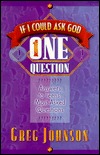 Answers to teens' most asked questions. Ideal for young Christians who are sorting through questions about God, the Christian life, and the Bible. Shows that God isn't afraid of a heart that is genuinely searching. Rating: 3.14 out of 5 Whether you have been brought up in a Christian family or have made the decision to turn to God yourself, religion can still be very confusing. Greg Johnson has worked with teenagers for fifteen years and has compiled “80 Answers to teen’s most-asked questions.” Johnson’s aim with If I Could Ask God Just One Question is to aid the reader’s progress towards their goal of understanding the bible.
Johnson maintains that all answers to questions that matter can be found in the bible. He tries to prove this by answering each question firstly with a bible verse or passage, before explaining it in an informal, more relatable manner. Presumably, the questions discussed are what teens have directly asked the author, or questions he has heard throughout his career. Many of the questions are generalized, such as how to become a better Christian, fears about being mocked in school, worries about sin and not going to heaven, and so forth. On the other hand there are a few deeper questions, for example why do bad things happen? These are not simple yes/no questions that can be stated as fact. Many of the answers are up for their own interpretation depending on the reader’s own circumstances. This may make things more confusing, however something may hit home and open their eyes in recognition of the Christian faith. Although written informally and appropriately for teenagers, it is still obvious that this is an adult talking to someone considerably younger than himself. Johnson includes his own personal experiences, however they are slightly outdated compared with the issues modern-day teens may face, e.g. social media. Johnson tries to make the Bible a less intimidating book. He suggests a chapter order to follow for those new to the Christian faith. The layout of If I Could Ask God Just One Question lets readers dip in and out, reading the answers to questions that relate to them or that they have thought of at some point themselves. It is probably not wise to read from front to back in one sitting, but instead to take the questions one at a time, analyzing the answers and relating them to personal experience. Note pages have been included for the reader to jot down any thoughts they have whilst reading. Ultimately this book helps teenagers to feel less alone and overwhelmed with their newfound faith. Despite this there is nothing to stop older Christians from benefitting from it too. Everyone needs a reminder once in a while, and a nudge back onto the right path in order to continue living a humble, Christian lifestyle. Ruth Meets Boaz in the Grain Field Ruth 2:1-23 1 Now Naomi had a relative on her husband’s side, a man of standing from the clan of Elimelek, whose name was Boaz. 2 And Ruth the Moabite said to Naomi, “Let me go to the fields and pick up the leftover grain behind anyone in whose eyes I find favor.” Naomi said to her, “Go ahead, my daughter.” 3 So she went out, entered a field and began to glean behind the harvesters. As it turned out, she was working in a field belonging to Boaz, who was from the clan of Elimelek. 4 Just then Boaz arrived from Bethlehem and greeted the harvesters, “The Lord be with you!” “The Lord bless you!” they answered. 5 Boaz asked the overseer of his harvesters, “Who does that young woman belong to?” 6 The overseer replied, “She is the Moabite who came back from Moab with Naomi. 7 She said, ‘Please let me glean and gather among the sheaves behind the harvesters.’ She came into the field and has remained here from morning till now, except for a short rest in the shelter.” 8 So Boaz said to Ruth, “My daughter, listen to me. Don’t go and glean in another field and don’t go away from here. Stay here with the women who work for me. 9 Watch the field where the men are harvesting, and follow along after the women. I have told the men not to lay a hand on you. And whenever you are thirsty, go and get a drink from the water jars the men have filled.” 10 At this, she bowed down with her face to the ground. She asked him, “Why have I found such favor in your eyes that you notice me—a foreigner?” 11 Boaz replied, “I’ve been told all about what you have done for your mother-in-law since the death of your husband—how you left your father and mother and your homeland and came to live with a people you did not know before. 12 May the Lord repay you for what you have done. May you be richly rewarded by the Lord, the God of Israel, under whose wings you have come to take refuge.” 13 “May I continue to find favor in your eyes, my lord,” she said. “You have put me at ease by speaking kindly to your servant—though I do not have the standing of one of your servants.” 14 At mealtime Boaz said to her, “Come over here. Have some bread and dip it in the wine vinegar.” When she sat down with the harvesters, he offered her some roasted grain. She ate all she wanted and had some left over. 15 As she got up to glean, Boaz gave orders to his men, “Let her gather among the sheaves and don’t reprimand her. 16 Even pull out some stalks for her from the bundles and leave them for her to pick up, and don’t rebuke her.” 17 So Ruth gleaned in the field until evening. Then she threshed the barley she had gathered, and it amounted to about an ephah. 18 She carried it back to town, and her mother-in-law saw how much she had gathered. Ruth also brought out and gave her what she had left over after she had eaten enough. 19 Her mother-in-law asked her, “Where did you glean today? Where did you work? Blessed be the man who took notice of you!” Then Ruth told her mother-in-law about the one at whose place she had been working. “The name of the man I worked with today is Boaz,” she said. 20 “The Lord bless him!” Naomi said to her daughter-in-law. “He has not stopped showing his kindness to the living and the dead.” She added, “That man is our close relative; he is one of our guardian-redeemers.” 21 Then Ruth the Moabite said, “He even said to me, ‘Stay with my workers until they finish harvesting all my grain.’” 22 Naomi said to Ruth her daughter-in-law, “It will be good for you, my daughter, to go with the women who work for him, because in someone else’s field you might be harmed.” 23 So Ruth stayed close to the women of Boaz to glean until the barley and wheat harvests were finished. And she lived with her mother-in-law. (NIV) Harvest falls on the closest Sunday to the first full moon after the autumn equinox. It is a pagan festival which Christians have used to show how God provides. Harvest was important to the life of the Israelites. Part of the heart of harvest is in the spirit of gleaning. Deuteronomy 24:18-22 says that when harvesting and overlook a sheaf of wheat, leave it for the foreigner because you must remember you were once slaves in Egypt. The story of Ruth mentions a farmer. The outsides of his fields remained uncut so that the poor could feed. Within the spirit of harvest, we not only celebrate the safe gathering in of a crop that has been dependent upon the weather but also looking after the poorest of society. Perhaps it is time to reflect upon how we use our gifts, our harvest. Do we satisfy ourselves fully and abundantly, or do we leave something for the marginalised and the outcast? The concept of tithing, which means a tenth in Hebrew, asks that we set aside one-tenth of our income or whatever we produce to go towards those who are most unfortunate in our society. As 2 Corinthians 9:8 reminds us, God loves a cheerful giver.
Within Harvest, we think about setting aside a small part of our gifts from the benefit of others. Whilst Harvest festival itself is decreasing in popularity, (the first traditional harvest festival as we know it was in 1843), the spirit of what it says about thanking God and providing for others is not at all out of date. We reap what we sow and next year’s harvest I would like to set the challenge that what we have sown this week we reap in a year. Let us consciously sow some seeds. What seeds are we going to sow? Will we be making extra phone calls to make sure the lonely get a call, will we give more to charities, will we sponsor a child? Whatever it is, let us be specific and sow a seed so that next harvest we can say what we have achieved. Dear All,
October, as you know, is the tenth month of the year but it keeps its name from the old calendar of Romulus when it was the eighth month. In French, October is often abbreviated to 8bre. Each month is assigned a “birth flower” and this month it is the calendula. In early Catholic countries, this yellow flower was sometimes nicknamed “Mary’s Gold”, giving it the more common name Marigold. I just thought that would be an interesting little snippet of information for you. Speaking of snippets, when I am preparing for sermons, a sometimes come across interesting pieces of information or articles, so I thought I would share one with you. This is an anonymous poem that reminded me of how prayer works. During Covid-19, many people have turned to prayer. Some churches were able to host online services, whereas, we focused on our blog on our website. Over 3700 people have visited our website, at least 60% of whom visited during the last few months. Here is the poem: The Blessing of Unanswered Prayers I asked for strength that I might achieve; I was made weak that I might learn humbly to obey. I asked for health that I might do greater things; I was given infirmity that I might do better things. I asked for riches that I might be happy; I was given poverty that I might be wise. I asked for power that I might have the praise of men; I was given weakness that I might feel the need of God. I asked for all things that I might enjoy life; I was given life that I might enjoy all things. I got nothing that I had asked for, but everything that I had hoped for. Almost despite myself, my unspoken prayers were answered; I am, among all men, most richly blessed. Be careful what you pray more and remember, sometimes prayer is answered in the most unexpected of ways. Nobody wanted Covid-19 and there have been thousands upon thousands of tragedies. Yet, from that tragedy, God can work. God did not create the tragedy, but he will use it to show God is working God’s purpose out. Blessings, Martin Fun Fact: The longest word in the Bible is “Mahershalalhashbaz (Isaiah 8:3) |
©Copyright
We are happy for you to use any material found here, however, please acknowledge the source: www.gantshillurc.co.uk AuthorRev'd Martin Wheadon Archives
June 2024
Categories
All
|
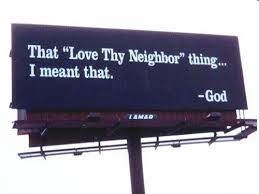
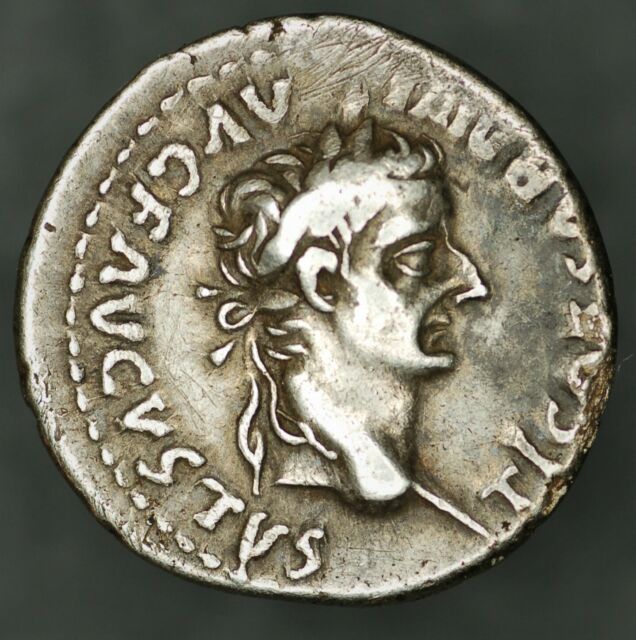
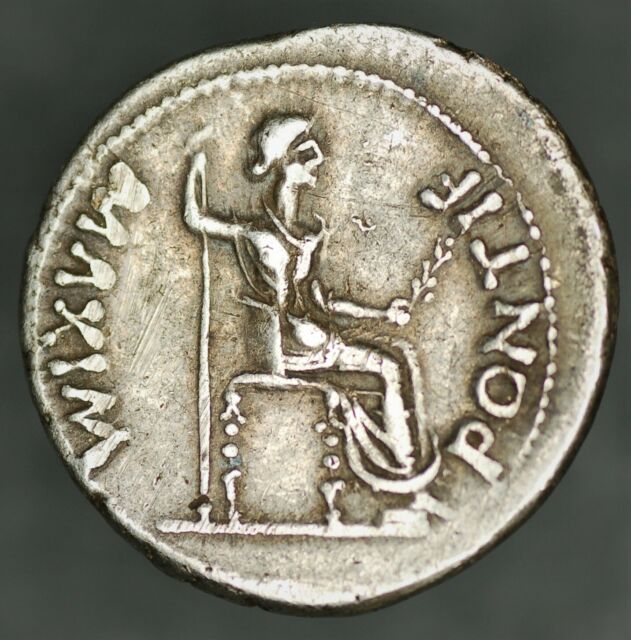
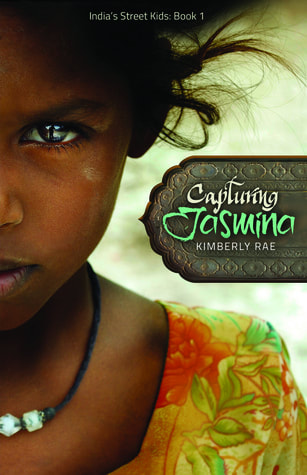
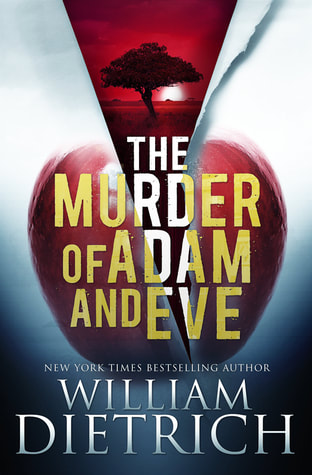
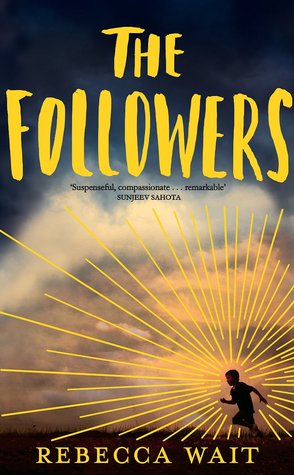
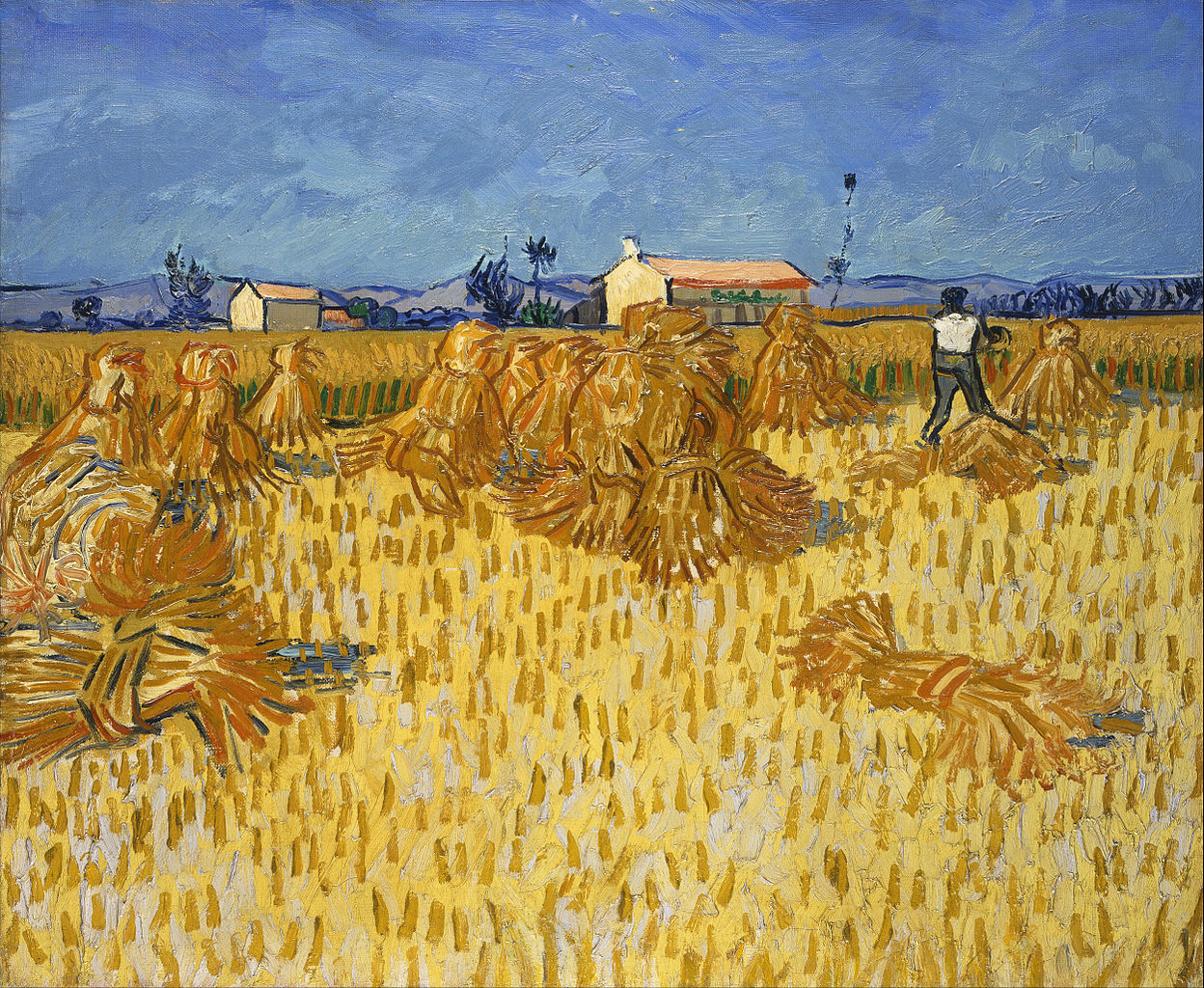
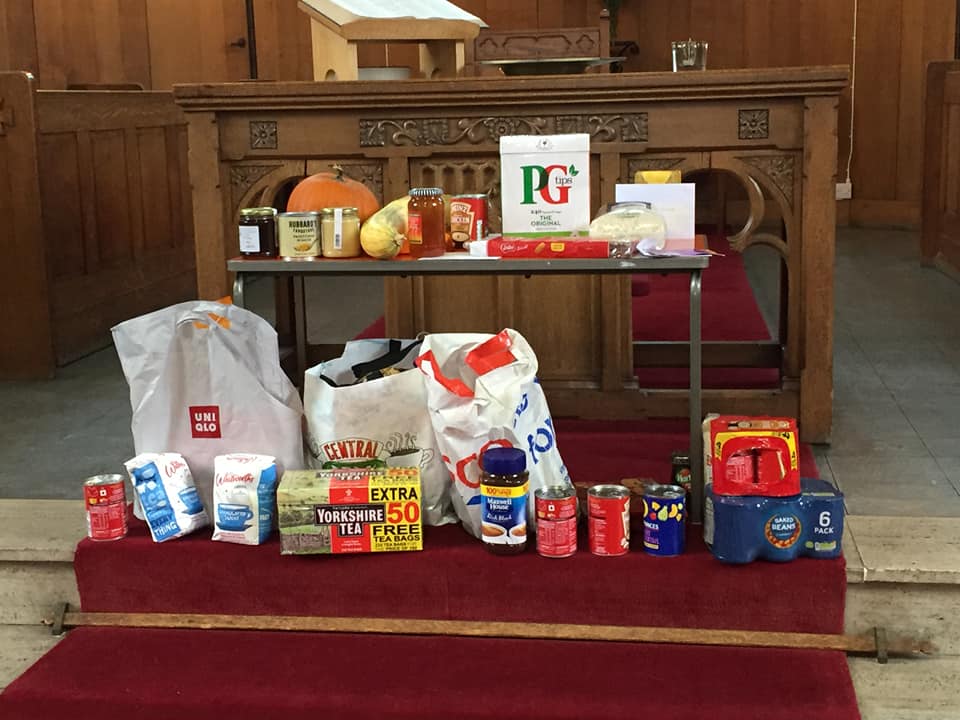
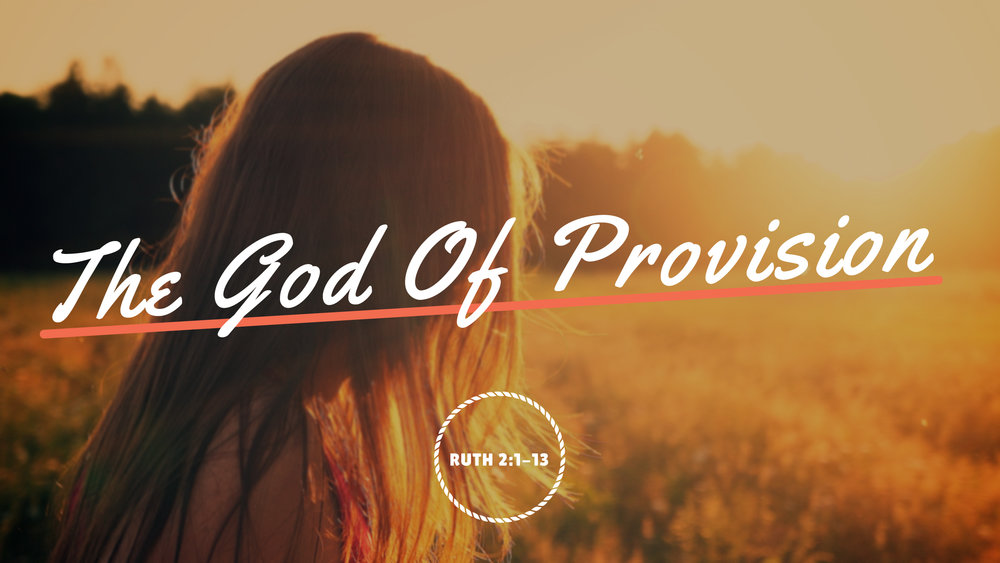
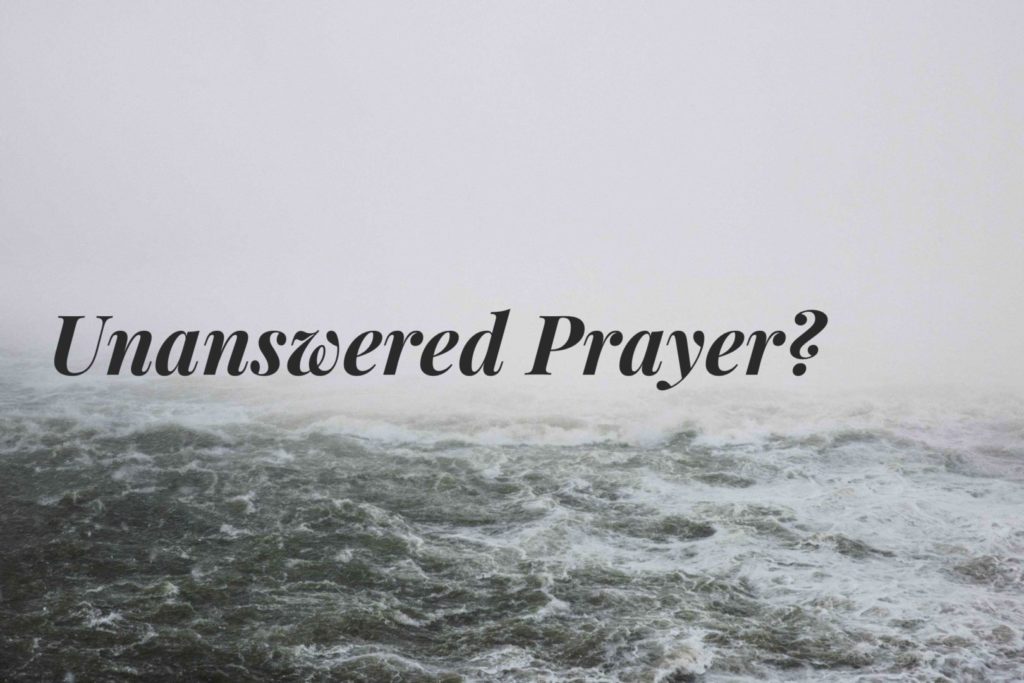
 RSS Feed
RSS Feed